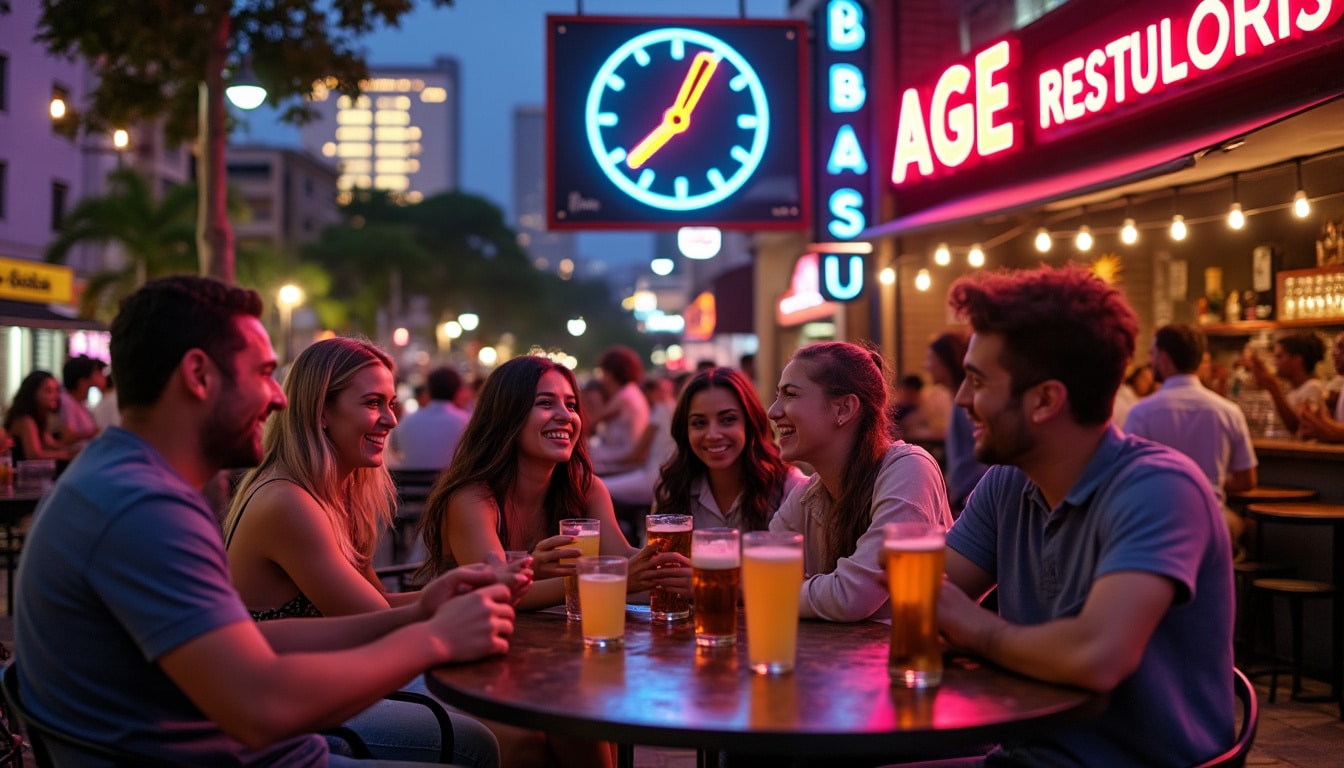When one thinks of São Paulo, the city conjures up images of sprawling urban landscapes, vibrant street life, and an eclectic mix of cultural influences. This bustling metropolis, often referred to as the “New York of South America,” is a melting pot of traditions and modernity. Amidst its lively nightclubs, pulsating rhythms, and delightful culinary experiences, the city also enforces a set of legal standards that govern the consumption of alcohol. São Paulo, like the rest of Brazil, follows strict age restrictions regarding alcohol, balancing its spirited nightlife with a responsibility towards public health and safety. This comprehensive guide dives deep into understanding the nuances of drinking laws in São Paulo in 2025, providing clarity on who can enjoy a caipirinha and where you might find yourself in hot water.
Understanding the Legal Drinking Age in Sao Paulo 🇧🇷
The legal drinking age in Brazil, including São Paulo, is codified at 18 years of age. This is a national directive seen across the country’s 26 states and one federal district, stemmed from a law enacted by the Brazilian Congress to curb the heightened societal concerns over alcohol consumption among minors. While the official age limit stands firm, São Paulo showcases a slight leniency that allows minors aged 16 or 17 to consume alcohol under specific conditions. Most notably, they must be accompanied by a parent or guardian, reflecting an attempt to balance cultural practices with legalities.
This policy might raise eyebrows for some international observers, especially those from countries with drinking ages set at 21, like the United States. However, it’s important to recognize the cultural nuances that inform these laws. In many European and South American countries, drinking, especially wine and beer, is as much a part of family meals as it is a festive indulgence. This is mirrored in São Paulo, where an afternoon family outing at a local restaurant might include a toast with a light Brahma or Skol beer.
A notable exception to this rule includes instances where minors aged 12 to 18 can consume alcohol if it’s served in a restaurant that is part of a hotel. Such nuanced policies reflect São Paulo’s dynamic and adaptable approach to legislation. Parents in Sao Paulo often consider introducing their teens to alcohol in controlled environments as a form of education about responsible drinking. This approach, however, is not without its controversies, as societal expectations and the potential for abuse continue to feature prominently in public discourse.
In juxtaposition to these familial settings, the broader societal implication of these laws can be somewhat paradoxical. The robust nightlife of São Paulo — where clubs, pubs, and bars line the streets — underscores the requirement for rigorous ID checks, especially in places like Rua Augusta. Here, surrounded by eclectic sounds and lights, the nightlife never truly sleeps, and neither does vigilance.
It’s crucial for both locals and tourists to familiarize themselves with these laws to avoid unpleasant encounters with law enforcement. Violations can result in significant fines or even temporary bans from establishments. For venues, penalties are far harsher, including revocation of the license to serve alcohol — a stern reminder of the serious commitment Brazilian authorities have to enforcing these regulations.
The “Dry Law” and Its Implications 🚫
Running parallel to age restrictions is Brazil’s stringent “dry law,” legally referred to as law 11.705, which came into strong enforcement after Brazil’s Supreme Court upheld its constitutionality in 2022. This law sets a particularly low tolerance for alcohol consumption for drivers — essentially translating to zero tolerance for a blood alcohol content above 0%. The primary aim of this law is to reduce road accidents and fatalities associated with drunk driving. In São Paulo, known for its heavy traffic, this law plays a crucial role in maintaining public safety.
- Zero alcohol tolerance for drivers 🚗
- Stringent ID checks at establishments serving alcohol 🕵️
- Parental supervision required for underage drinking in certain circumstances 👪
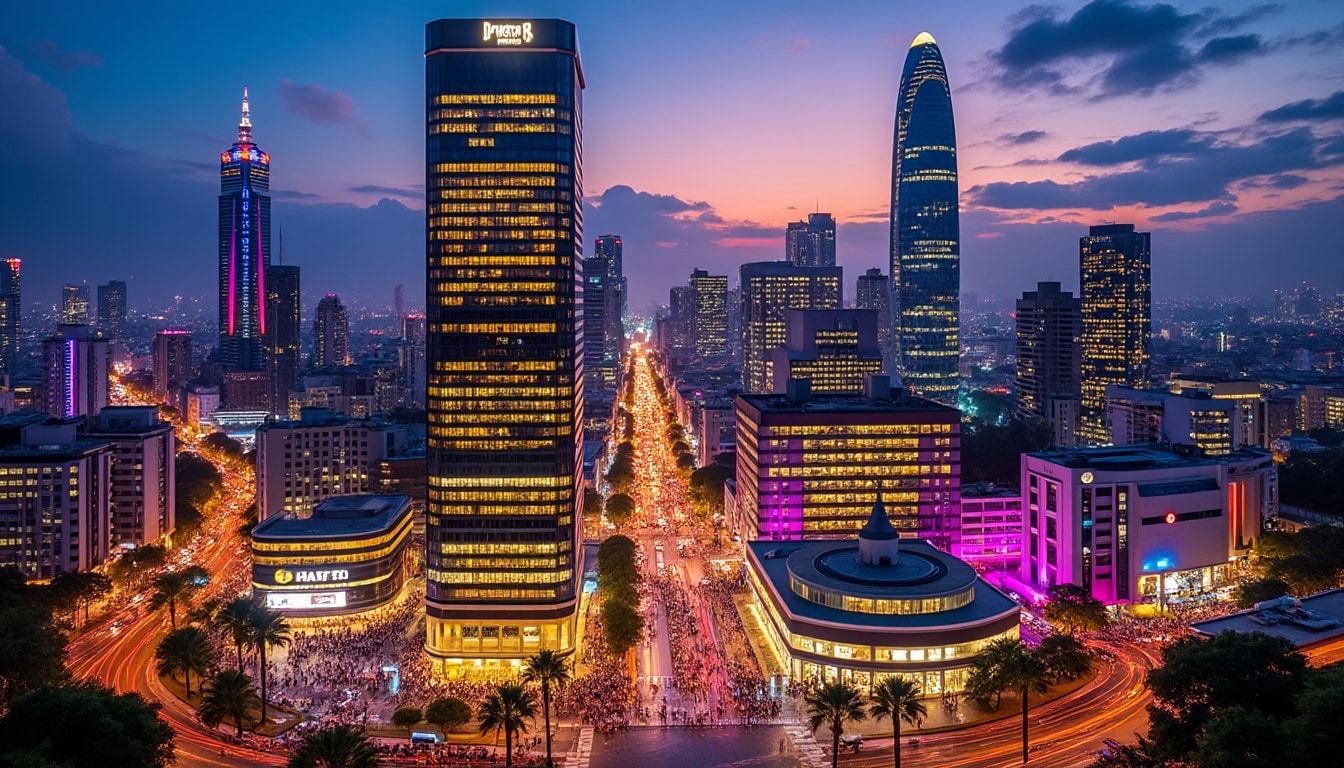
Law enforcement agencies are authorized to conduct breathalyzer tests at their discretion, even without any visible signs of intoxication. This has stirred a mix of reactions. While some hail it as a necessary measure for safety, others argue it infringes on personal freedoms. Nonetheless, the fatalities reduction speaks to its effectiveness, especially in urban areas like São Paulo.
| Parameter | Detail |
|---|---|
| Legal Drinking Age | 18 (exceptions for minors with parental supervision) |
| Alcohol Purchase Age | 18 |
| Driving Blood Alcohol Limit | 0% (zero tolerance) |
| Penalties for Underage Serving | Fines, license revocation |
The moderation seen in the enforcement of these laws is balanced with the indulgence seen in São Paulo’s cultural and festive scenes, epitomizing the Brazilian spirit’s vibrancy and resilience. Understanding these laws not only helps visitors stay on the right side of the law but also encourages a deeper appreciation of the São Paulo ethos — a city where modernity and tradition dance together harmoniously.
Alcohol Consumption Exceptions in Sao Paulo 🍷
While São Paulo may seem to have a lax attitude towards underage drinking compared to other regions globally, several essential exceptions guide this perception. As previously mentioned, minors from ages 16 to 18 can legally consume alcohol when accompanied by a parent or guardian in certain controlled environments. However, it’s important to note that this applies differently depending on the establishment and context.
Hotel and Restaurant Policies 🏨
Many hotels across São Paulo have integrated alcohol consumption into their offerings, especially international chains aligning with local customs that tolerate these exceptions. Hence, a night dining at a hotel restaurant with parents might include sampling local alcohol, such as caipirinha made with Brazilian cachaça, as long as the hotel’s policy is in accordance with state laws.
The rationale behind such allowances is to inculcate responsible attitudes towards alcohol among teenagers under parental supervision. Notably, this echoes strategies seen in other countries with rich wine and beer culture, these nations often argue that exposing teenagers to moderate drinking helps reduce binge drinking later in life.
However, outside these controlled environments, São Paulo maintains an unyielding stance. Purchasing alcohol for or selling it to minors is prohibited outside the conditions mentioned above. Establishments found guilty of violating these laws face severe penalties, including significant financial fines and the revocation of their liquor licenses. These punitive measures underline a strict adherence to keeping alcohol consumption under strict checks and balances.
Tourist Spots and Local Guidance 🔍
For tourists in São Paulo, it’s vital to understand not just the legalities but the cultural underpinning of these laws. Many may find navigating these nuances daunting; however, a quick guide can help:
- Always carry an ID: Establishments require age proof to serve alcohol.
- Understand local norms: Respecting local customs goes a long way.
- Stay informed: Keep abreast of any changes to local laws, especially during holiday seasons or festivals when temporary laws might be in effect.
The appeal of São Paulo’s nightlife is undeniable, with an abundance of bars and clubs each offering their signature drinks, from globally known favorites like Heineken and Budweiser to Brazil’s own Brahma, Skol, and Antarctica. Yet, it’s the understanding and respect for local laws that ensure this vibrant scene remains just as accessible to future generations.
Comparative Analysis: Drinking Ages Worldwide 🌍
The drinking age in São Paulo can seem relatively liberal by global standards, especially when compared to nations such as the United States, where the legal age is set at 21. However, this age is in line with numerous countries worldwide, further illustrating the complexities and cultural variances in alcohol legislation. Moving beyond São Paulo, let’s see a snapshot comparison of drinking ages across different countries and cultures:
| Country | Legal Drinking Age | Special Conditions |
|---|---|---|
| United States 🇺🇸 | 21 | N/A |
| Germany 🇩🇪 | 16 (beer and wine) | 18 for spirits |
| Japan 🇯🇵 | 20 | N/A |
| Spain 🇪🇸 | 16 (beer and wine) | 18 for spirits |
| Brazil 🇧🇷 | 18 | 16 with parental supervision |
Comparing Brazil’s drinking laws with that of other countries shows how age restrictions can be both rigid and flexible, adapting to cultural, historical, and social norms. Countries like Germany and Spain illustrate the nuanced understanding of alcohol consumption — lower ages for beer and wine, recognizing their cultural staple, with stricter rules for spirits.
In regions such as São Paulo, cultural vibrancy is mirrored not only in the drinks they serve but also in their comprehensive understanding of social responsibility. Such comparisons highlight the importance of context in understanding international laws. Whether a resident or a visitor in São Paulo, these rules shape the experience of the city, ensuring that while its streets may be lively, they are also safe and inclusive.
Enforcement and Cultural Significance of Age Restrictions 👮♂️
The cultural landscape of São Paulo is deeply intertwined with its regulatory environment. Enforcement of age restrictions is a cooperative effort between local law enforcement and the community, built on education and mutual respect. While the laws aim to protect young individuals from the potential pitfalls of early alcohol consumption, they also emphasize cultural education on drinking responsibly.
The city’s drinking culture, through its rigorous ID checks and community involvement in law policymaking, reflects a broader commitment to safety without stifling the expressive freedom that makes São Paulo’s nightlife so renowned. It’s a city where Brahma flows freely at soirées, and yet, the cultural binding acknowledges when enough is enough.
The past years have seen an upturn in alcohol-related fatalities globally, but São Paulo’s model, especially its adoption of the dry law, has shown promising results in curbing these figures. Educational programs in schools often focus on the negative impacts of binge drinking and are complemented by community events that celebrate local customs while promoting safe consumption.
Such efforts show a deeper understanding that while legal drinking ages and laws are crucial, they must be complemented by a robust cultural understanding of their significance. By fostering an environment of mutual respect and responsibility, São Paulo and its residents continuously strive to maintain the delicate balance between enjoyment and safety.
Social Responsibility Initiatives 📢
- Community-led awareness programs 🧠
- Collaborations with international organizations for better policy formulation 🌐
- Encouraging designated drivers in nightlife areas 🚗
The successful interplay of legislation, culture, and community engagement ensures that São Paulo’s vibrant spirit remains untethered while being conscious of the safety nets that protect its youth and visitors alike. Such an approach positions São Paulo not just as a hub of cultural diversity but as a forerunner in responsible urban living. The future looks set for Sao Paulo to thrive amidst a lively, ever-evolving global landscape, balancing enjoyment with responsible governance.
Frequently Asked Questions (FAQ) ❓
Q1: What is the legal drinking age in São Paulo?
A1: The legal drinking age is 18. Minors 16 or 17 can drink with parental permission in licensed establishments.
Q2: Are there any penalties for issuing alcohol to minors?
A2: Yes, penalties include fines and the possibility of establishments losing their license to serve alcohol.
Q3: What is the “dry law” in Brazil?
A3: It refers to the law with zero tolerance for drunk driving, with strict monitoring of road users for even minimal alcohol consumption.
Q4: Can tourists drink freely in São Paulo?
A4: Tourists can enjoy the vibrant nightlife, but they must adhere to local laws regarding drinking ages and zero-tolerance driving rules.
Q5: Are cultural events and festivals good places to explore São Paulo’s drinking culture?
A5: Absolutely! They offer a glimpse into local traditions and the city’s lively spirit, all within required legal boundaries.
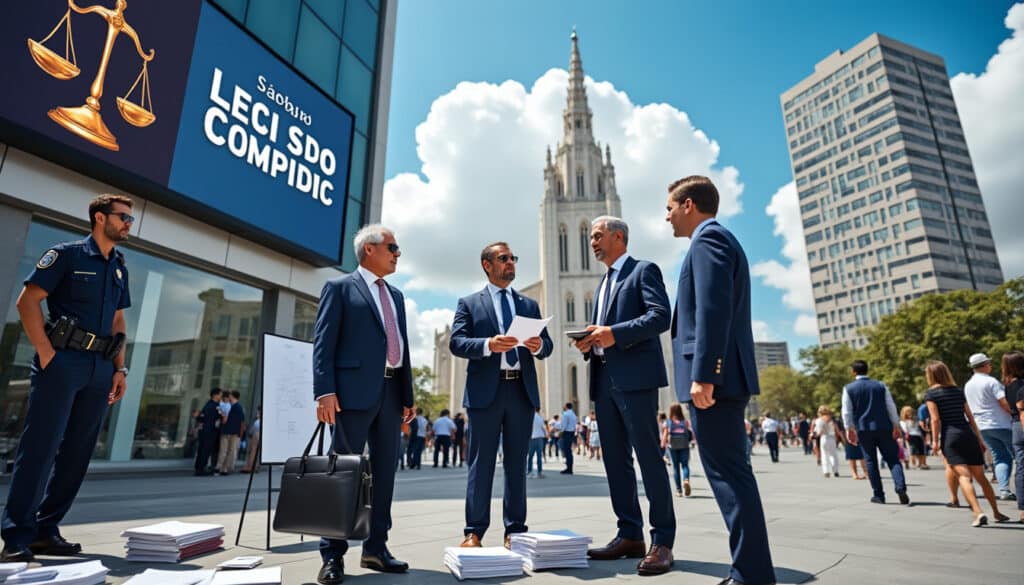
Legal Information and Rules in Sao Paulo
Sao Paulo, known as a vibrant and bustling metropolis, is not just the financial heart of Brazil; it is also home to a complex web of legal systems and rules. Navigating through Sao Paulo’s legal landscape is essential for newcomers…
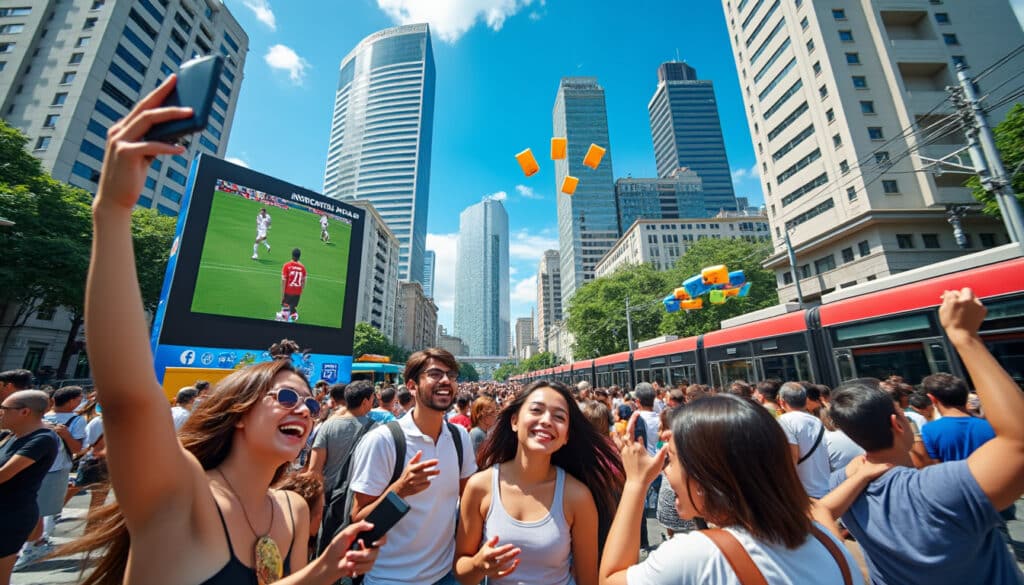
Calling and communication rules in Sao Paulo
São Paulo, the bustling metropolis of Brazil, is not only a hotspot for culture, art, and commerce but also a hub for diverse communication styles. Navigating through the city’s dynamic landscape requires a keen understanding of the local communication rules.…
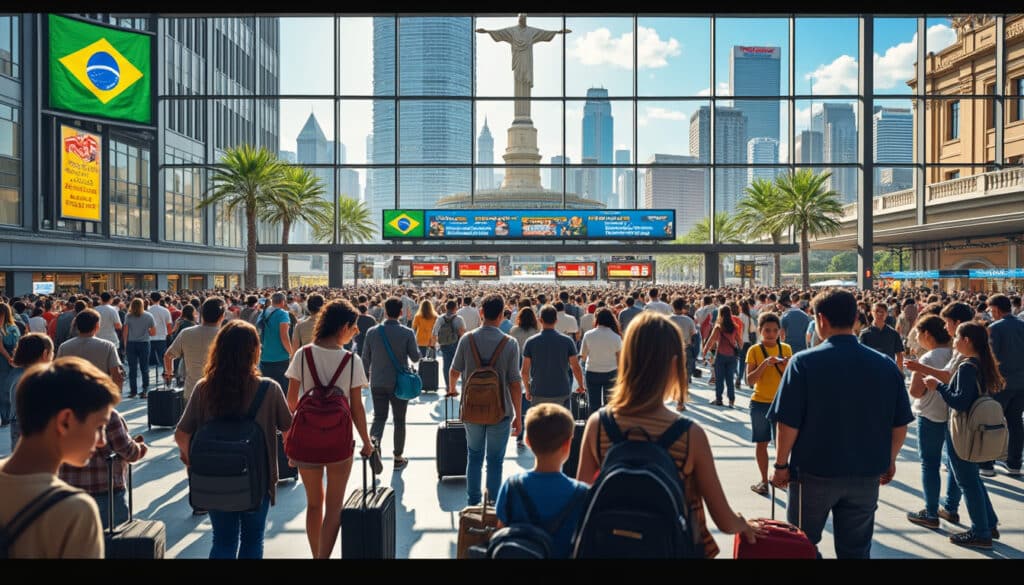
Criminal status and entry to Sao Paulo
With its sprawling metropolis, vibrant culture, and endless opportunities, Sao Paulo is a city that draws in thousands of visitors annually. However, entering this bustling Brazilian city isn’t a straightforward experience for everyone, especially those with a criminal record. Navigating…
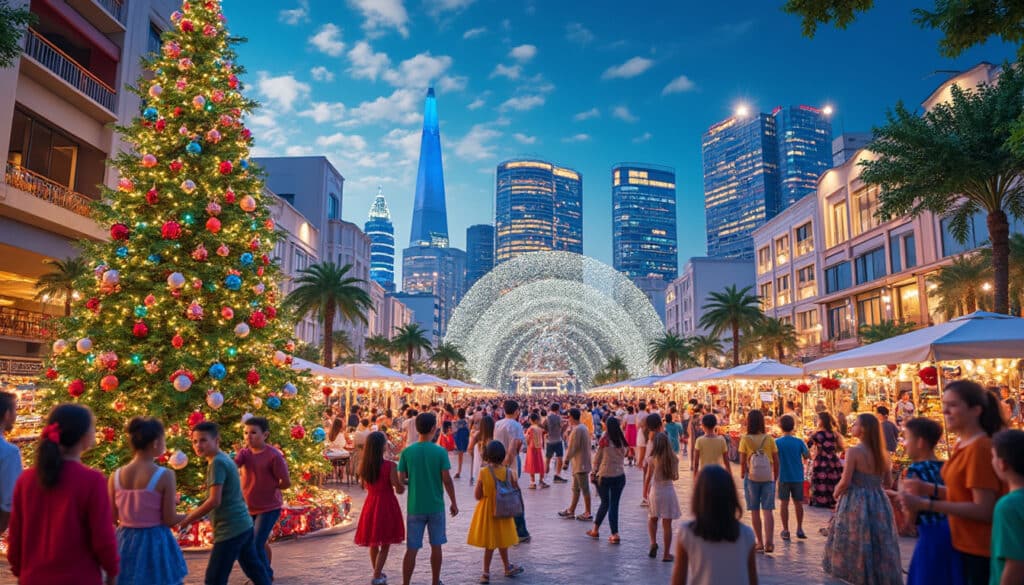
As the city of São Paulo gears up for its holiday celebrations, residents and visitors alike anticipate the changes and openings of various services for a truly vibrant urban experience. From health services operating on special schedules to transportation systems…
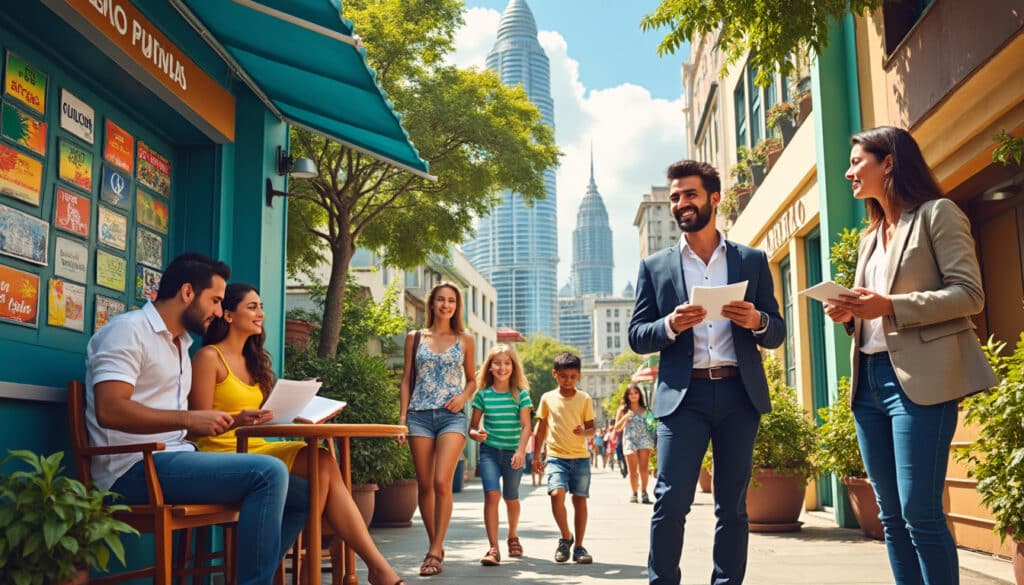
How to move to Sao Paulo legally
Moving to São Paulo can be an exhilarating experience for anyone looking to expand their horizons, professionally or culturally. Known as Brazil’s economic powerhouse, São Paulo offers a blend of rich urban culture, historical significance, and modern amenities. However, making…
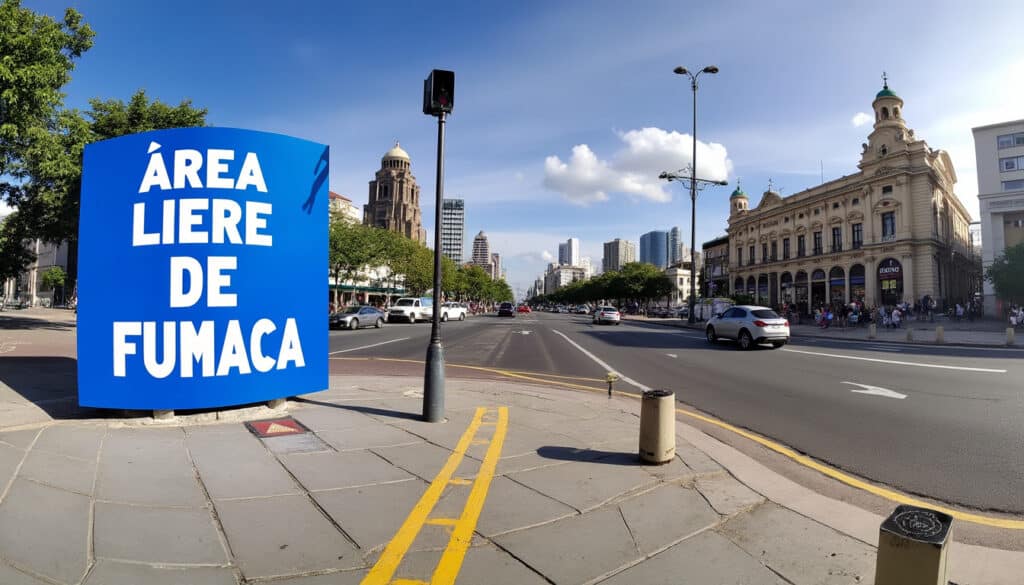
Smoking, drugs, and red light laws in Sao Paulo
The dynamic city of Sao Paulo, renowned for its vibrant culture and bustling streets, also faces its share of urban challenges. From the striking contrasts between affluence and poverty to the lively nightlife scenes, topics like smoking regulations, drug laws,…
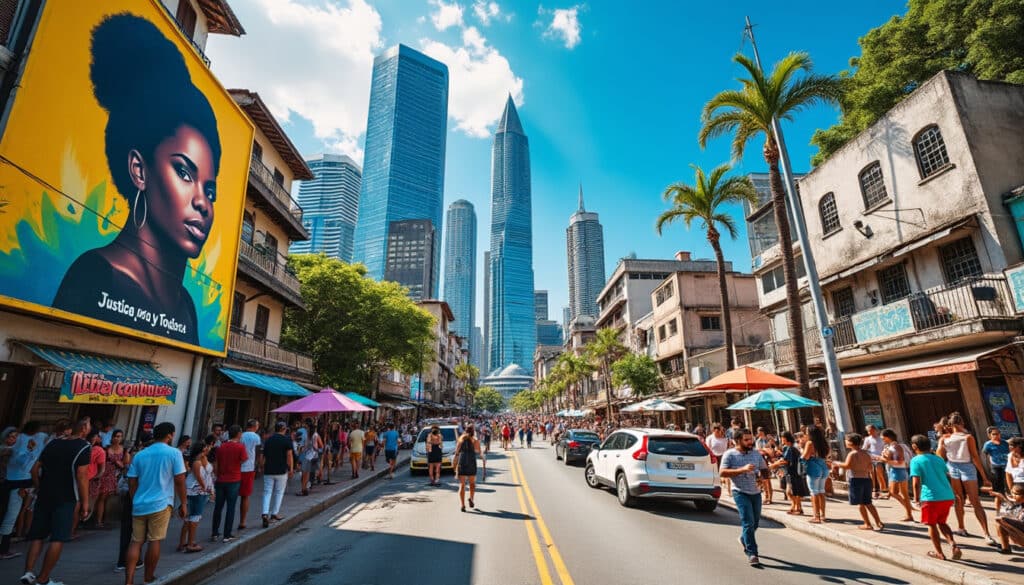
Social and discrimination issues in Sao Paulo
São Paulo, a vibrant metropolis, has long been a symbol of Brazil’s dynamic growth and diverse cultural tapestry. Yet, beneath its surface lie intricate layers of social and discrimination issues that affect its residents. As Brazil’s largest city, São Paulo…

